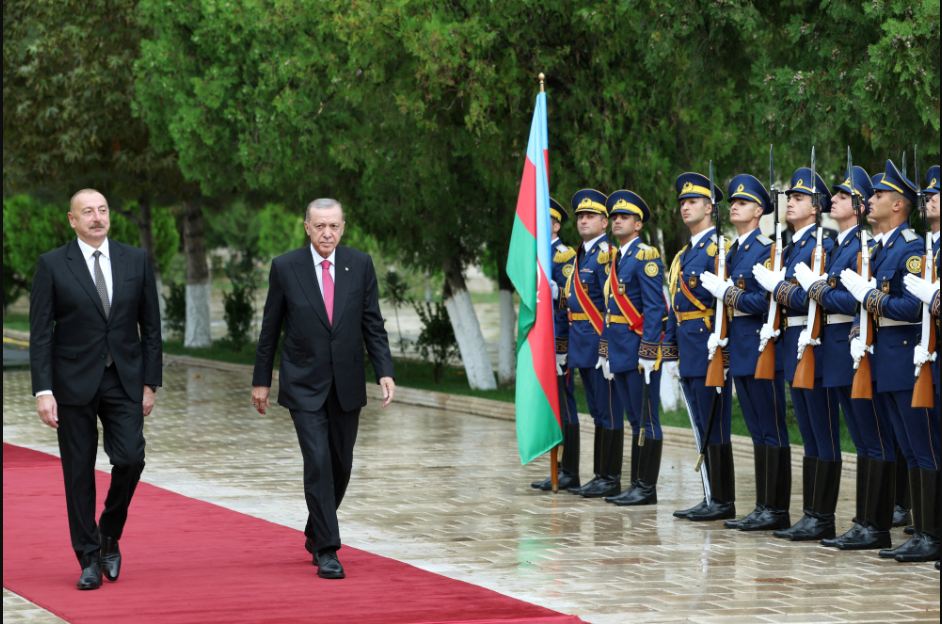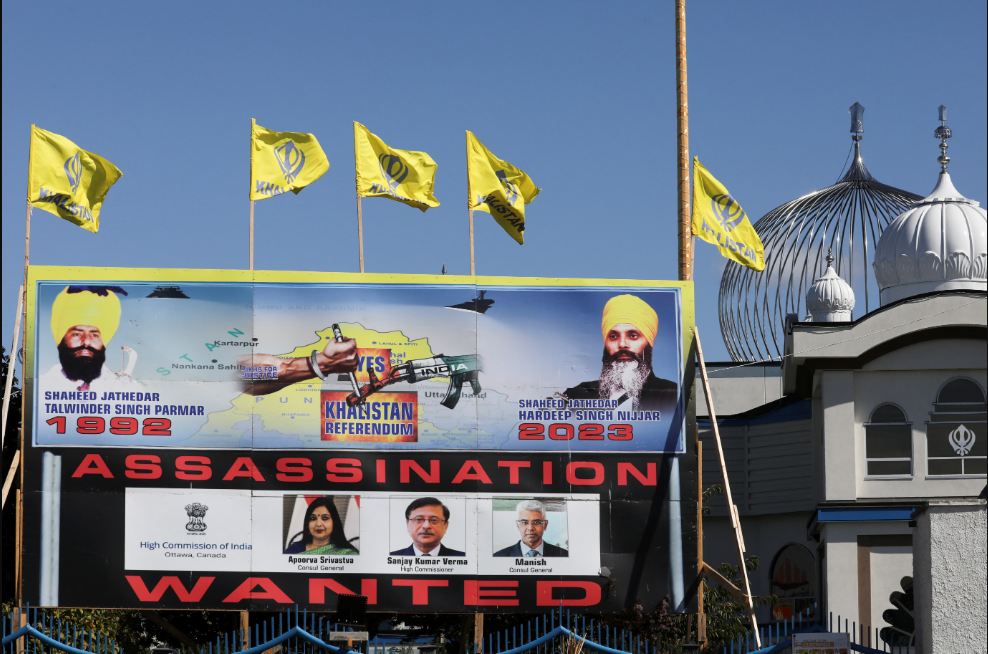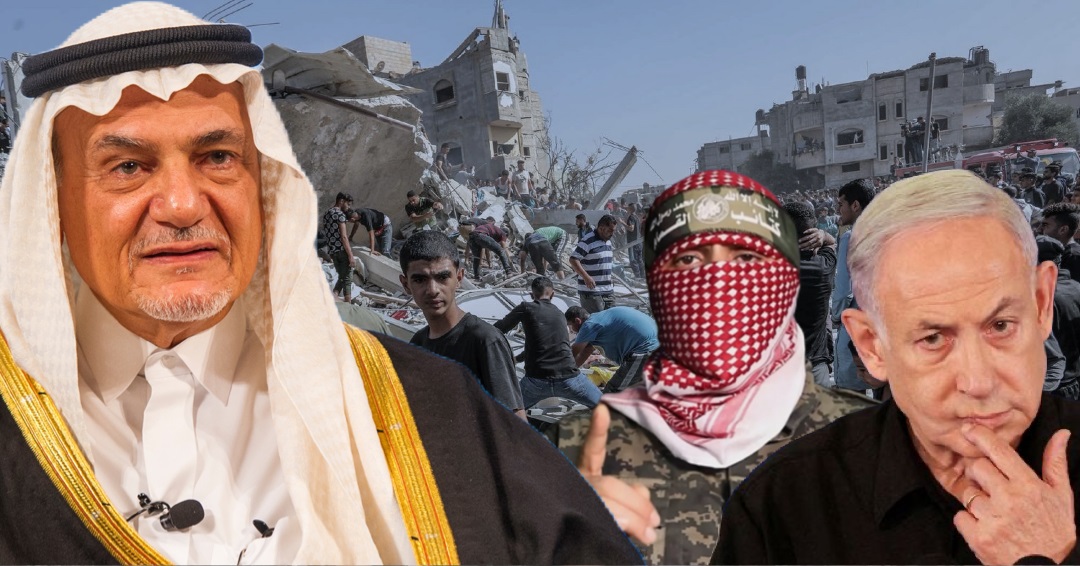Azerbaijani and Turkish leaders hold talks, eye land corridor via Armenia
(Reuters) – Azerbaijani President Ilham Aliyev hosted talks on Monday with his Turkish counterpart Tayyip Erdogan at which he hinted at the prospect of creating a land corridor between their two countries via Armenia, which opposes the idea.
Erdogan pointedly flew into Azerbaijan’s autonomous Nakhchivan exclave, a strip of territory nestled between Armenia, Iran and Turkey that Ankara and Baku want to link up with rump Azerbaijan by carving out a land corridor that would run through southern Armenia.
Aliyev in 2021 threatened to create such a corridor – that would create a contiguous land bridge between close allies Turkey and Azerbaijan and deprive Armenia of a land border with Iran – “whether Armenia likes it or not.”
The symbolic choice of location for Monday’s talks, less than a week after Azerbaijani forces swept into Nagorno-Karabakh to retake control of the breakaway region, is likely to worry the authorities in Armenia, who have in the past rejected such a land corridor while being theoretically open to restoring severed road and rail links.

At a joint news conference at which neither man took any questions, President Aliyev lamented that Soviet-era authorities had deemed part of what he said should have been territory belonging to the Azerbaijani Soviet republic as land belonging to the Armenian Soviet republic.
“The land link between the main part of Azerbaijan and Nakhchivan (the exclave) was thus cut off,” complained Aliyev.
An influential telegram channel linked to Karabakh Armenians called “Re:public of Artsakh” said Aliyev’s words looked ominous.
“The new target of Azerbaijan and Turkey is Syunik (a province in southern Armenia through which such a corridor would pass). They are already openly declaring it. Active preparations for war are underway,” it said.
Erdogan and Aliyev were due to inspect a newly-modernised military facility in Nakhchivan and to attend a ground-breaking ceremony for a new gas pipeline from Turkey.
Russia, which has military facilities in Armenia and a defence pact with Yerevan, is busy prosecuting its own war in Ukraine. It is at odds with Armenia’s current prime minister who it deems to be too pro-Western and is keen to further cultivate ties with Baku and Ankara.
Erdogan told the U.N. General Assembly on Tuesday last week, the day that Azerbaijan began its military operation to retake control of Karabakh, that there was what he called “an historic opportunity to build peace” in the South Caucasus region.
“(But) Armenia is not making the most of this historical chance,” Erdogan complained.
“We expect a comprehensive peace agreement between the two countries (Azerbaijan and Armenia) as soon as possible and for promises to be quickly fulfilled, especially on the opening of the Zangezur (land) corridor.”
That was a reference to the terms of a 2020 Russian-brokered ceasefire agreement that ended a 44-day war between Azerbaijan and Armenia that spoke of unblocking economic and transport connections between western Azerbaijan and Nakhchivan, a clause which Baku and Yerevan have since interpreted differently.



